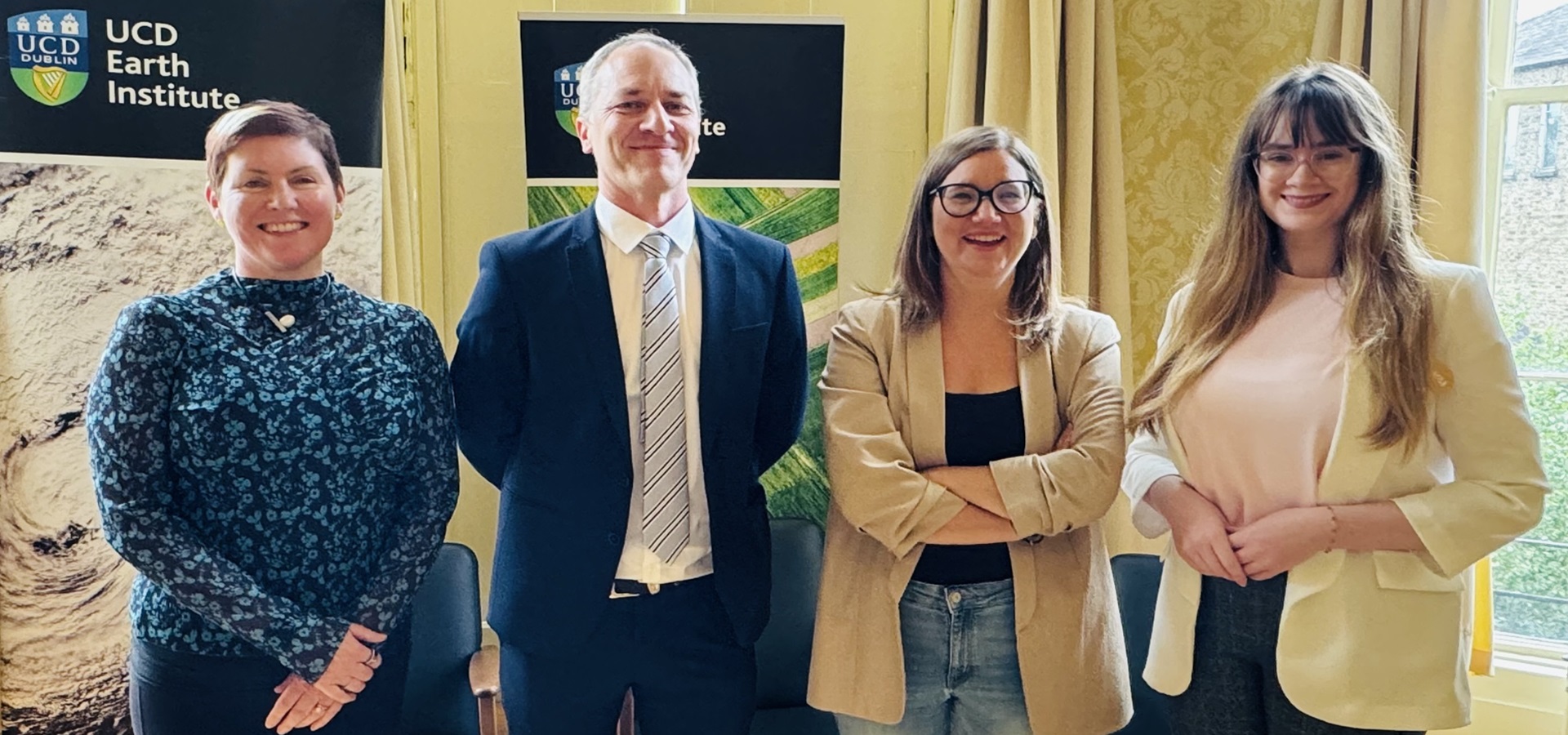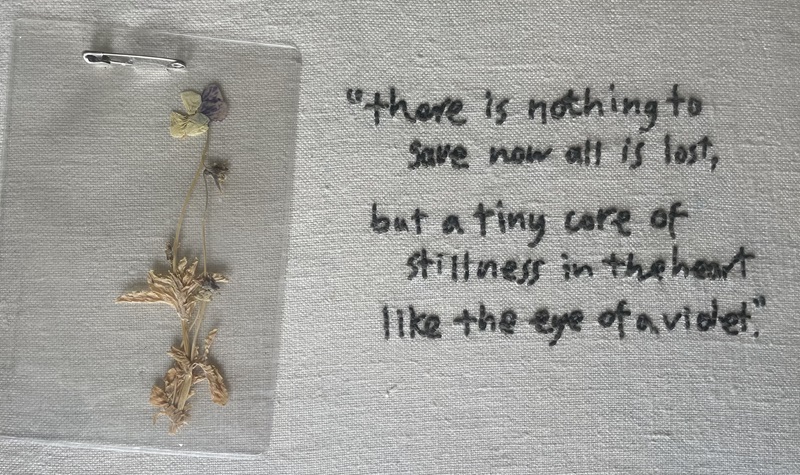Earth Institute Democracy and the Environment Series launched
The first seminar in our newly launched ‘Democracy and the Environment’ series of seminars and discussions was on Rural Transitions and took place in the Museum of Literature Ireland (MoLI) in late March 2024 with opening remarks from UCD Earth Institute Director Professor Eoin O'Neill and contributions from rural experts Dr Karen Keaveney (Head of Subject in Rural Development, UCD School of Agriculture and Food Science, and Vice-President of the Geographical Society of Ireland), Kieran Harrahill (PhD Candidate and Senior Researcher with TASC) and Dr Andrew Forde, Department of Rural and Community Development. Karen presented on 'Sustainable Rural Livelihoods and Irish Towns' with Kirean presenting on 'The Role of Climate Justice in Securing Local Development for Rural Communities'. The seminar highlighted the intersection of research and policy in the areas of rural development, rural identity, rural climate transition and living standards.
Dr Andrew Forde summarised, "I feel very strongly that the gap between academic and research sector ... and public policy needs to be narrowed. It's a win-win solution for everybody - for policy makers like me there's nothing that will we will feel more empowered with more than data, credible data." Dr Forde continued, "We need to think on the micro level - how can the individual civil servant, the individual academic or researcher, build those bridges themselves, to forge out those connections and try to ensure that our research is relevant and is utilised?"
Our ‘Democracy and the Environment’ series of seminars and discussions is focused on the role of democracy and the environment, citizen trust in public institutions, and the sustainability agenda in the context of the local and presidential elections. The series aims to establish close links between the Irish research community and wider society including local communities, politicians and other strategic actors.
Visit our events page to find out more about the 'Democracy and the Environment' seminar series and other Earth Institute events.
Dr Karen Keaveney biography
Dr. Karen Keaveney is Head of Subject for Rural Development in the School of Agriculture and Food Science, University College Dublin. She leads the 'Citizen Rural Research Lab' in the School of Agriculture and Food Science, and is a founding member of the UCD Centre for Irish Towns (CfIT). Karen is Principal Investigator for the Irish Research Council (IRC) funded project: 'Citizen Rural: Digital Data for Participatory Democracy in Remote Places' which is examining data and evidence for bottom-up decision-making in rural localities. Additional current projects include: InPLACE - Investigating Place, Planning and Commuting which is examining post-covid commuting impacts on rural towns.
Previously, Karen was a Lecturer in Rural Spatial Planning in Queen's University Belfast. She has held a number of visiting appointments internationally, including Visiting Research Fellow in the Joint Centre for Housing Studies, Harvard University, and Visiting Professor in the Department of Geography and Planning, University of Toronto. She has been a member of both the Social Science and Geographical Sciences Committees in the Royal Irish Academy. She is currently the UCD representative on the Department for Rural and Community Development 'Our Rural Future' HEI Network, and is a member of the Rural Housing Subcommittee of the Housing Commission.
She is a qualified Urban and Regional Planner (UCD) with an undergraduate degree in Human and Physical Geography (University of Galway) and PhD in Geography (Maynooth University) entitled 'Contested Ruralities: Housing in the Irish Countryside'. Karen is a Rural Geographer and Planner, with research interests in rural planning and housing, rural development, and agricultural education. She has expertise in co-design in local decision-making and governance, rural power relations and socio-economic change in the countryside. Her publications and research include the areas of policy responses to rural change, cross-border and inter-jurisdictional planning, local government reform, and planning on the island of Ireland. In 2023 she was elected to the position of Vice-President of the Geographical Society of Ireland.
Kieran Harrahill biography
Kieran’s research interests focus on ensuring that a move away from pollutant industries is achieved in a manner which maintains the living standards of those employed in industries which create carbon emissions. The thesis for his MSc in Environmental Policy entailed developing a framework for achieving a ‘just transition’ in coal producing jurisdictions. A core interest in Kieran’s work is ensuring that a connection is made between the merits of environmental policy and the daily lives of citizens.
At BiOrbic, Kieran’s research is focused on producer perspectives on the bioeconomy. The title of Kieran’s PhD thesis is A farmer-centred approach to understanding Ireland’s bioeconomy in the context of Just Transition. This research seeks to identify what are the perceptions of producers within the agricultural industry towards the bioeconomy and whether there is the potential for the bioeconomy to reduce producers’ dependence on agricultural activities, which provide them with an income but also contribute significantly to Ireland’s Greenhouse Gas emissions.
Kieran is currently working as a senior researcher in climate justice with TASC, the think tank for action on social change. Kieran is leading a nationwide initiative called the People’s Transition. Working with diverse communities across Ireland, the aim of the People’s Transition is to co-create climate solutions which can address immediate challenges facing communities and build support for climate action.
Dr Andrew Forde biography
Dr Andrew Forde is Principal Officer, Rural Regeneration Unit, Department of Rural and Community Development and responsible at Principal Officer level for oversight of the delivery of the €1 billion Rural Regeneration and Development Fund (RRDF), the Town and Village Renewal Scheme, the National TidyTowns Competition, the Local Improvement Scheme as well as the development and implementation of the National Town Centre First Policy.

